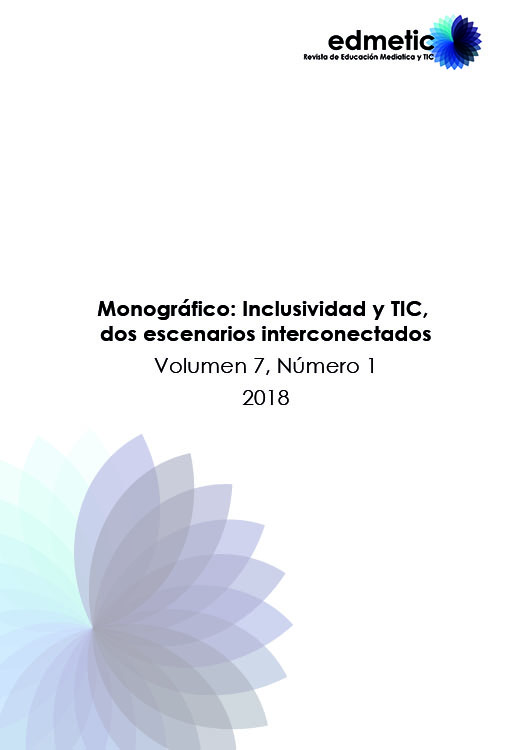Humanizando la escuela a través de la educación inclusiva
Main Article Content
Abstract
Resumen:
Este artículo tiene como objetivo presentar una reflexión, producto de un proceso de investigación profesoral en el cual se retoman dos elementos fundamentales de análisis: la esencia humanizante y transformadora que el proceso de educación inclusiva y el rol de docente han tenido en las últimas décadas.
Para esto se realiza inicialmente una revisión de cuatro fases que organizan los momentos por los que ha pasado la escuela en referencia a los procesos inclusivos. En segundo lugar, se establecen aquellos aspectos que constituyen una educación inclusiva de calidad, resaltando ésta como un proceso sistémico inacabado. Por último, se hace un análisis del rol del docente como eje dinamizador de las prácticas inclusivas desde la participación y el aprendizaje, resaltando las características que se requieren para ser un maestro que contribuya a los procesos de intervención pedagógica desde una perspectiva inclusiva.
Palabras claves:. Educación inclusiva, rol docente, aprendizaje y participación.
Abstract:
This article aims at submitting a reflection, result of a research process in which is bring two fundamental analysis elements back: the humanizing and transforming substance that an inclusive education process and teacher's role have had over the last decades.
For this purpose, it is made a four phases review which organize the stages the School has passed through, in reference to inclusive processes. Secondly, it will be established the aspects that constitute a quality inclusive education, emphasizing it as an unfinished systemic process. Then, a teacher’s role analysis is conducted, considering teacher as a driving force of inclusive practices from the axes of participation and learning, underlining the required features to be a teacher who contribute into a pedagogical intervention from an inclusive approach.
Keywords:. Inclusive education, teacher's role, learning and participation.
Downloads
Article Details
TRANSFER RIGHTS AND COMMITMENTS TO EDMETIC, REVISTA DE EDUCACIÓN MEDIÁTICA Y TIC
E-ISSN: 2254-0059
The undersigned author(s) of article entitled:
- Transfer to EDMETIC, Revista de Educación Mediática y TIC publishing rights of the article mention before. The magazine will have the right to publish in any format or media this article.
- The author(s) claim that this article is original and which has not been published before in any format and wasn´t submitted for evaluation to another publication.
- The author(s) claim that this article has the copyright´s permissions for publication
- The author(s) accept the changes to the contents on the review, and changes in the style of the manuscript by the Editorial Board of EDMETIC, Revista Educación Mediática y TIC.
- The author(s) declare that they have complied with the ethical principles of research.
- The author(s) not be subject to personal or business association that involves a conflict of interest with article presented
- El author(s) undertakes to give the primary sources of information, if requested.
Date:
Author(s) names and signatures (1):
(1) Fill the form and send to: revistaedmetic@uco.es
References
ARNAIZ, P. (2003). Educación inclusiva: una escuela para todos. Málaga: Aljibe.
BOOTH, T., y AINSCOW, M. (2011). Index for inclusion. Developing learning and participation in schools (3.a ed.). Bristol: CSAI.
CARBONELL, J. (2016). Pedagogías del siglo XXI.España. Octaedro
CARDONA, M. (2006). Diversidad y educación inclusiva. Enfoques metodológicos y estrategias para una enseñanza colaborativa. Madrid: Pearson Educación.
CONTRERAS, J. (2002). O Pelouro. Una escuela para toda la infancia. Revista Cuadernos de Pedagogía, 313, 47-78.
DECLARACIÓN DE SALAMANCA (1994). Conferencia mundial sobre necesidades educativas especiales. España.
DURÁN, D., y GINÉ, C. (2011). La formación del profesorado para la educación inclusiva: Un proceso de desarrollo profesional y de mejora de los centros para atender la diversidad. Revista Latinoamericana de Inclusión Educativa, 5(2), 153-170.
ECHEITA, G., SIMÓN, C., VERDUGO, M.A., SANDOVAL, M., LÓPEZ, M., CALVO, I., y GONZÁLEZ, F. (2009). Paradojas y dilemas en el proceso de inclusión educativa en España. Revista de Educación, 349, 153-178.
KEMMIS, S., y MACTAGGART, R. (1988). Cómo planificar la investigación-acción Barcelona: Laertes.
MEN (2015). Decreto 1075 de 2015. Bogotá.
PARRILLAS, A. (2002). Acerca del origen y sentido de la educación inclusiva. Revista de Educación, 327: 11-29.
SLAVIN, E. (1980). Effects of individual learning expectations on student achievement. Journal of Educational Psychology, 72, 520-524.
UNESCO (2005) Guidelines for inclusion: Ensuring Access to Education for All. París: UNESCO. Recuperado de http://unesco.org/eduacion/inclusive
VÉLEZ, L. (2011). La educación inclusiva en los programas de formación inicial de docentes. Proyecto de investigación doctoral. Doctorado Interinstitucional en Educación. Bogotá: Universidad Pedagógica Nacional.
